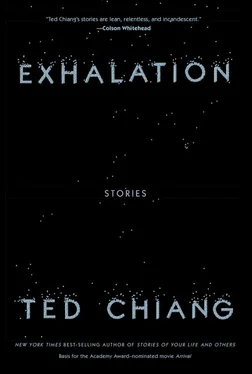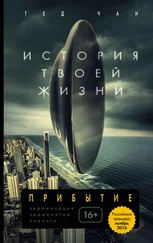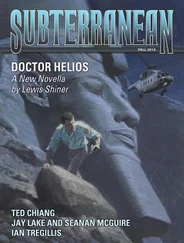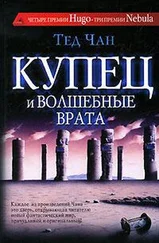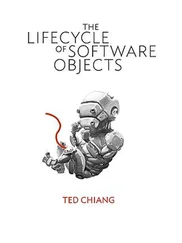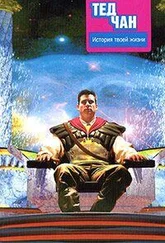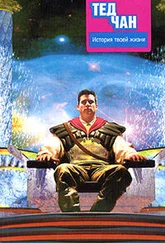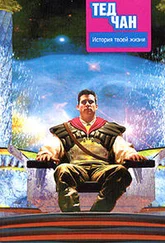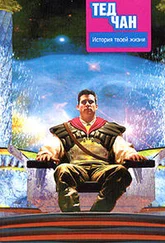Perhaps I’m merely envious of the Church’s ability to raise money; forgive me for that, Lord. They are trying to celebrate your glory, Lord, just as we in the scientific community are, so I cannot disagree with them too strenuously. Our commonalities are more important than our differences.
I went to the post office where Martin Osborne received his mail and sat on a bench at a bus stop across the street. I had sealed the package with colored tape so I’d be able to recognize it easily when he left the post office, so I waited and watched. I felt conspicuously awkward as people arrived and got on buses while I continued to sit there. An hour passed, and then another, and more than once I wondered if I had gone about this in the wrong way. I am more accustomed to hunting for bones than for living prey, Lord; I know very little about stalking or camouflage.
At last I saw the package that I had prepared. I had almost missed it, because I had been expecting to see a man, but instead a young woman had carried it out and set it down on the curb while she hailed a cab. She was young, no more than eighteen, and maybe younger; too young to be an employee of the museum. At first I thought she must be an accomplice of Martin Osborne, perhaps someone he’d inveigled into his scheme, but then I realized that I was being a chauvinist just as much as the men whose preconceptions constantly irritate me.
I approached her and asked if she was “Martin Osborne.” She hesitated for a long moment and then, accepting that she’d been caught, said, “Yes, I am. Did you send the mailgram?” I told her I did. I’d been prepared to hurl fiery accusations at the brigand I expected to find, but faced with a young woman, I was uncertain how to proceed. I introduced myself, and she said her name was Wilhelmina McCullough. The surname was familiar, and struck by a sudden suspicion, I asked if she was related to Nathan McCullough. She answered, “He’s my father.”
That made things clear; the girl was the daughter of the director of the University of Alta California’s Museum of Natural Philosophy in Oakland. None of the staff would question the presence of the director’s daughter in the storerooms.
She asked me, “I take it this means this package doesn’t actually contain the relics?” I told her it didn’t. She picked it up and dropped it in a nearby trash container. “So now that you’ve found me, what do you want?”
I said that for a start, she could explain to me why she had stolen from her father’s museum.
She said, “I’m not a thief, Dr. Morrell. Thieves steal for their personal benefit. I took the relics for God’s benefit.”
I asked her why, if she wanted to support the construction of Yosemeti Cathedral, had she asked that the relics be sold at modest prices. She said, “You think I was trying to raise money for the cathedral? I don’t care about that at all. What I wanted was for as many people as possible to be able to appreciate the relics. I would’ve handed them out for free, but who’d believe they were real if I did? I couldn’t sell them myself, so I donated them to someone who could.”
I said that people could appreciate the relics by visiting the museum.
“No one could see the relics I took; they were gathering dust in cabinets. It makes no sense for the university to collect so many things it can’t display.”
I told her that all museum curators wish they were able to display more of their collection. I told her that they rotate through their collections.
She responded by saying, “There are plenty of items that will never go on display,” and I couldn’t deny that. She pulled an item from her purse; it was a primordial clamshell, with a smooth section surrounded by growth rings. “I show this to people when I talk to them about God, and everyone who sees it has been impressed. Think of how many people could have their faith strengthened by the relics that sit in the back rooms of the museum. I’m trying to put them to good use.”
I asked her how long she had been taking relics from the museum, and she said she had only begun recently. “People’s faith will be tested soon, and some of them will need reassurance. That’s why it’s important for the relics to be available. They’ll dispel people’s doubts.”
I asked her what kind of test of faith was coming. She said, “There’s a paper that’s about to be published; I know about it because my father was asked to review it. When people read it, a lot of them will lose their faith.”
I asked her if the paper had precipitated a crisis of faith in her, and she was dismissive. “My faith is absolute,” she said. “My father’s, on the other hand…”
The idea that her father might be experiencing a crisis of faith seemed incredible to me; as a scientist, he was the last person to have reason to doubt. I asked her what kind of paper it was, and she said, “Astronomy.”
I admit, Lord, that I’ve never had much regard for astronomy; it has always struck me as the dullest of the sciences. The life sciences are seemingly limitless; every year we discover new species of plants and animals and gain a deeper appreciation of your ingenuity in creating the Earth. By contrast, the night sky is just so finite. All five thousand eight hundred and seventy-two stars were cataloged in 1745, and not another has been found since then. Whenever astronomers peer at one more closely, they confirm that it’s identical in size and composition to every other, and to what end? It’s the essential nature of stars that they have so few characteristics; they’re the backdrop against which the Earth stands out, reminding us of how special we are. Choosing to study them has always felt a bit like choosing to taste the plate that food is served on.
So it doesn’t completely surprise me that an astronomy paper might cause people to lose sight of what’s important, although I would have expected such a reaction from a layperson rather than a scientist. I asked Wilhelmina what was in the paper, and she said, “Nonsense.” I asked her to elaborate, but all she would say was that it was a theory designed to instill doubt. “And all based on something someone saw in a telescope!” she said. “Every relic I gave away was a piece of evidence you can hold in your hand. You know it tells the truth because you can feel it.” She brought her clamshell to my hand and pushed my thumb back and forth across the border between the smooth and ringed areas of its shell. “How can anyone have doubts about that?”
I told Wilhelmina I would have to speak to her parents about what she had done. She seemed unconcerned. “I won’t apologize for bringing people closer to God. I know I’ve broken rules in doing so, but it’s the rules that need to be changed, not my behavior.”
I told her that people couldn’t simply disobey rules just because they disagreed with them, because society would cease to function if everyone did that.
“Don’t be silly,” she said. “You lied when you sent that mailgram as Mr. Dahl. Was that because you believe we should all be free to lie? Of course not. You thought about the situation and concluded that lying was justified. You’re prepared to take responsibility for what you did, aren’t you? Well, so am I. That’s what society needs us to do, not to follow rules without thinking.”
I wish I had her confidence when I was her age. Indeed, I wish I had her confidence right now. It’s only when I’m doing fieldwork that I am certain I am following your will, Lord. When it comes to matters such as this, there is always some uncertainty in my mind.
“My father is in Sacramento today,” Wilhelmina said. “If you want to speak with him, you can come by our house tomorrow morning before nine.” She gave me her address.
Читать дальше
